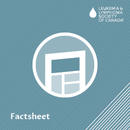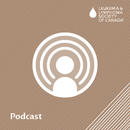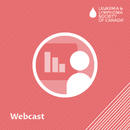Acute myeloid leukemia (AML)
also goes by the following:
Acute Myeloblastic Leukemia
You are not alone.
Know that the blood cancer community is here to support you every step of the way.
What happens next?
Talking to family and friends
Telling your children
Speaking with your employer
Preparing for appointments
Understanding lab results
Asking for a second opinion
Coping with fear, anxiety and stress
Taking care of your body
Managing fatigue and cognitive challenges
Understanding insurance and organizing finances
Experiences of others

Resources on AML
Chemotherapy
An overview of what chemotherapy is, how it works, how it is given, side effects, and questions to ask your healthcare team.
Acute Myeloid Leukemia (AML)
AML is one of four main types of leukemia. It progresses quickly if untreated. It features cancerous blood cells, often called “blasts.” AML typically affects adults over the age of 65 and is slightly more common in men.
Understanding and managing acute myeloid leukemia (AML)
A comprehensive guide to better understand AML.
Blood and Marrow Stem Cell Transplant
Get an overview of what your blood and bone marrow do; understand the different types of stem cell transplants; learn who is eligible for a stem cell transplant; find out how to prepare for a stem cell transplant; learn about recovery.
Understanding clinical trials
Get an overview of clinical trials, understand them, how they are planned, evaluate benefits and risks of participating, address concerns and what to ask.
Types of blood cancer treatments
You or your loved one has been diagnosed with a type of blood cancer. Cancer treatment can be complex, with different types of treatment options available for some blood cancers. What are they and how do they work? This fact sheet will help you Learn about the different treatment options available, Understand each type of treatment and how it can help, Prepa…
Understanding Genetics
Genetics plays an important role in understanding cancer and treatments for cancers. What is genetics and how is it involved in cancer?
Shared Decision Making: Discussion tool for people with a blood cancer
You or your loved one has been diagnosed with a type of blood cancer. You will be making important decisions with your healthcare team.
Maintenance Therapy: Staying in remission after treatment
Maintenance therapy is treatment given after the first (primary) therapy used to manage your cancer, or lower your risk of the cancer coming back. Some people may use maintenance therapy for a long time. This type of therapy can include drugs, vaccines, antibodies, or hormones.
Maintenance therapy can be used after a stem cell transplant for a blood cancer …
Acute Myeloid Leukemia (AML) - Overview with Dr. Florian Kuchenbauer
Dr. Florian Kuchenbauer explains the basics of AML diagnosis, treatment, side effects, and research.
Living with AML - A Conversation with Michael Kornicoch
Michael Kornicoch shares his story of being diagnosed with acute myeloid leukemia (AML) through to remission.
Acute myeloid leukemia (AML) - A Conversation with Dr. Aly Karsan
Dr. Aly Karsan talks about Acute myeloid leukemia (AML) diagnosis, treatments, causes and research.
What I learned from my AML experience: Sarah Robertson shares her story
While her experience with an aggressive form of acute myeloid leukemia (AML) was filled with uncertainty - waiting for a diagnosis, not knowing the effects of chemotherapy, undergoing a stem cell transplant - Sarah Robertson says she learned some important lessons. She discovered she had an incredible supportive network of family and friends. She also says …
AML and Your Genes (Part 4 in the AML series)
Learn more about acute myeloid leukemia.
Acute myeloid leukemia (AML): Expanding access to novel treatment and care, 2024 Leukemia Conference
Acute myeloid leukemia (AML) is a type of cancer that forms in blood cells and bone marrow that progresses rapidly if untreated. In this presentation, Dr. Brett Houston, a hematologist at the University of Manitoba, will speak about her work in clinical trials in finding ways to optimize care and improve outcomes for patients affected with acute leukemia, as…
Understanding Acute Myeloid Leukemia
This animated video helps you understand AML, its treatment, management and side effects.
AML Treatment Options
Learn more about treatments that are available to help you or a loved one through an acute myeloid leukemia experience.
AML Treatment Side Effects and Tips
Learn more about treatments, side effect and tips to help you or a loved one through an acute blood cancer experience.
Precision medicine: Finding the right treatment and improving treatments for each of us
Scientists continue to gain a deeper understanding of the genetic changes that lead to the development of cancers. This knowledge is being used to develop more precise treatments for blood cancers, especially in Acute Myeloid Leukemia (AML).
In this webcast, Dr. Aly Karsan talked about the latest research developments in precision medicine. Dr. Karsan i…
AML survivor Gary Su's story
Gary Su, of Calgary, was diagnosed with acute myeloid leukemia (AML) in his 30s and underwent a stem cell transplant with his sister as donor. He says the Leukemia and Lymphoma Society of Canada became his guiding light, offering a wealth of reliable information and connecting him with a supportive community.
All resources
Access all fact sheets, guides, podcast, videos and other resources to learn everything from disease symptoms, statistics and treatment options.
Subtypes
Doctors classify acute myeloid leukemia (AML) into subtypes by using various tests. The subtype plays a large part in deciding the type of treatment.
Myeloblastic
Myeloblastic, with minimal maturation
Myeloblastic, with maturation
Acute promyelocytic leukemia (APL) - More information available
Acute myelomonocytic leukemia
Acute monocytic leukemia
Acute erythroid leukemia
Acute megakaryocytic leukemia


















